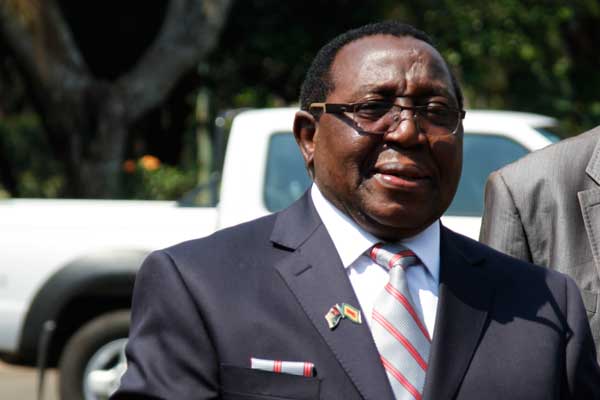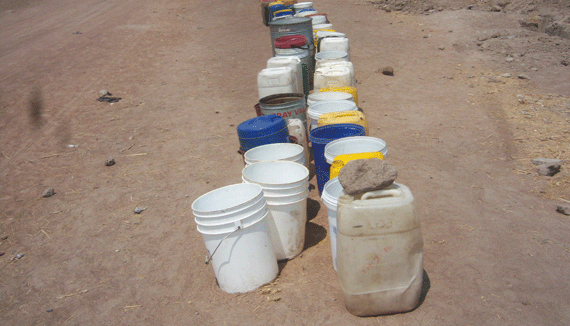
 ECONOMIC Planning minister Simon Khaya Moyo has conceded that Zanu PF’s much-touted antidote to the economic collapse — the Zimbabwe Agenda for Sustainable Socio-Economic Transformation (ZimAsset) — has missed most of its targets.
Everson Mushava
ECONOMIC Planning minister Simon Khaya Moyo has conceded that Zanu PF’s much-touted antidote to the economic collapse — the Zimbabwe Agenda for Sustainable Socio-Economic Transformation (ZimAsset) — has missed most of its targets.
Everson Mushava
Speaking at the Small and Medium Enterprises and Co-operative Investment Expo in Harare on Tuesday, Khaya Moyo said economic growth targets had fallen short since the launch of ZimAsset in 2013.
“As you may be aware, government started implementing ZimAsset in 2013. Our ZimAsset runs from 2013 to 2018,” Khaya Moyo, who is also Zanu PF spokesperson, said.
“Since the commencement of ZimAsset implementation, economic growth realised has fallen short of targets set in the blueprint.
“ZimAsset targeted economic growth averaging 7,3% during the plan period (October 2013-December 2018), with the economy expected to grow by 3,4% in 2013 and 6,2% in 2014 and continue on an upwards growth trajectory to 9,9% by 2018.
“However, the country could only manage growth rates of 3,4% in 2013 and 2014 respectively.”
This is the first time Zanu PF has admitted that its economic blueprint has suffered the same fate of its predecessors in failing to stimulate economic development. Zimbabwe is currently experiencing a serious economic downturn that has resulted in massive company closures and job losses, despite Zanu PF promising in its 2013 electoral campaign that it would create over two million jobs.
This has been worsened by a recent Supreme Court ruling, which triggered massive job cuts after it gave the employer the right to terminate employees’ contracts on three months’ notice without having to pay retrenchment packages.
- Chamisa under fire over US$120K donation
- Mavhunga puts DeMbare into Chibuku quarterfinals
- Pension funds bet on Cabora Bassa oilfields
- Councils defy govt fire tender directive
Keep Reading
To date, over 9 000 workers have been laid off since Chief Justice Godfrey Chidyausiku delivered the ruling two weeks ago.
But Khaya Moyo said the decline in economic growth in 2014 was a result of poor investment performance, low business confidence, liquidity constraints, infrastructure and energy deficits, limited fiscal pace, depressed domestic demand and subdued international prices for major exports.
“It is the duty of government and my ministry in particular to turn around this economy and achieve desired economic growth,” he said.
Khaya Moyo also conceded that the country was receiving the least foreign direct inflows compared to her neighbours, while savings had declined due to high cost of capital.
He said the public debt now stood at $7,94 billion, translating to 56% of the country’s gross domestic product.
On agriculture, Khaya Moyo said it was now “a pale shadow of its vibrant self of the 1980s” due to climate change and poor financing.
The manufacturing industry was also underperforming, forcing the country to rely on cheap imports.
“This, I must mention, compromises the ZimAsset objective for the country to become self-sufficient in food and regain its status as the breadbasket of Southern Africa,” he said. “As I mentioned earlier, poor performance of the agricultural sector has negative downstream implications for the rest of the value chain.”
President Robert Mugabe and his ruling Zanu PF party often blame Western sanctions for the country’s failure to meet its development goals that has seen it lagging behind the rest of Africa.










